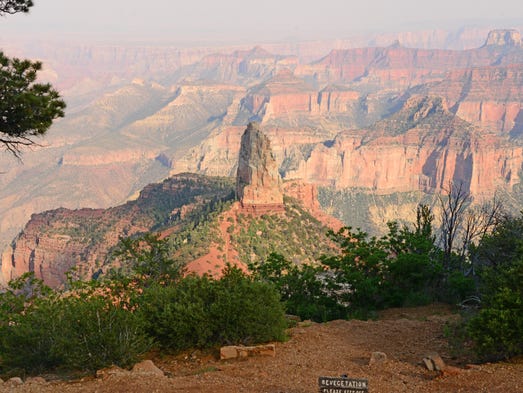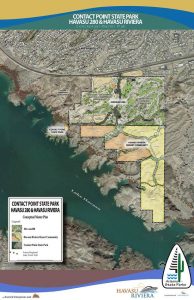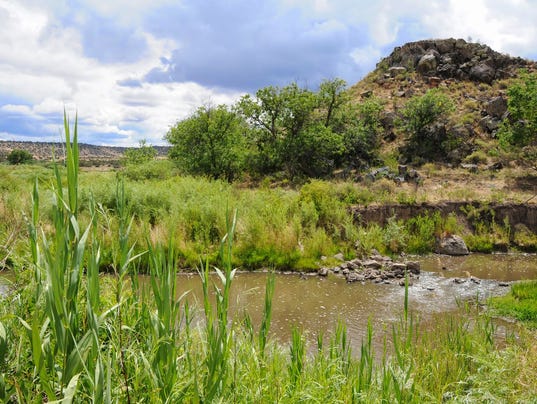(Source: Arizona Republic, July 16, 2016). The Republican Party’s newly adopted 2016 platform contains narrowly approved language calling for our national endowment of federal public lands, which currently belong to all Americans, to be surrendered to states in order to benefit special interests. Given the Republican Party’s strong conservation legacy, it is worth noting just how radical that position is.
The proposed platform language is way out of line with the public-land and conservation ethic that the country has embraced since the early 1900s when Republican president Theodore Roosevelt — responding to the rampant abuse of America’s natural resources — made conservation a priority.
The 1912 Republican Party platform was very clear about the party’s approach to our nation’s natural resources, proclaiming, “We rejoice in the success of the distinctive Republican policy of the conservation of our National resources, for their use by the people without waste and without monopoly. We pledge ourselves to a continuance of such a policy.” Even though Roosevelt was not the GOP nominee that year, the party continued to embrace his conservation principles. This has also been the case in subsequent platforms.
Even more on point, the 1924 Republican platform declared, “The natural resources of the country belong to all the people and are a part of an estate belonging to generations yet unborn.”
What conservatism really means
That is the kind of prudent, reverent, unselfish and forward-thinking perspective one would expect from a genuinely conservative political party. And we have also seen it reflected in more recent platforms.
The 1988 GOP platform quoted Roosevelt and cited the party’s “long and honored tradition of preserving our nation’s natural resources and environment.” It called safeguarding “our God-given resources” a shared responsibility and stated, “We believe public lands should not be transferred to any special group” and that “we should keep public lands open and accessible.”
As recently as 2008 the platform  pledged to manage our lands in a balanced way that protects our “irreplaceable environment” and noted that the “Republican perspective” is in agreement with Theodore Roosevelt’s view that the conservation of the nation’s natural resources is our most fundamental challenge.
pledged to manage our lands in a balanced way that protects our “irreplaceable environment” and noted that the “Republican perspective” is in agreement with Theodore Roosevelt’s view that the conservation of the nation’s natural resources is our most fundamental challenge.
Contrast the respect for our natural heritage, ethic of stewardship and commitment to balance reflected in those platforms — which according to polls is consistent with the views and values of most Republicans — with the radical anti-conservation agenda being pushed now by some within the party.
Who’s peddling this agenda?
That agenda includes, as now indicated in the 2016 platform, the wholesale transfer of our national forests, wildlife refuges and conservation lands, many of which were first protected by Theodore Roosevelt, to state and private interests.
It includes efforts in Congress to eliminate or undermine the Antiquities Act, the 110-year-old Republican-passed law that Roosevelt used to protect natural and cultural treasures like the Grand Canyon and Montezuma Castle.
It even includes an assault on the Land and Water Conservation Fund, a universally popular — and conservative — program that dedicates a small portion of oil- and gas-lease revenue to land conservation.
Who is peddling this agenda within the GOP? Primarily a handful of Western lawmakers, along with Koch-funded special-interest groups like Americans for Prosperity and the American Legislative Exchange Council (ALEC).
They are trying to reverse more than 100 years of conservative stewardship, seize land that is the birthright of every American, and act against the long-term interest of our nation, in order to facilitate their own short-term gain. There is nothing remotely conservative about it.
Be alarmed, very alarmed
That this small faction can hijack and radicalize the Republican Party platform in such a way should alarm all Republicans who love to hunt, fish, hike or otherwise enjoy America’s great outdoors — and especially those whose livelihood depends on outdoor recreation or tourism.
The party of Theodore Roosevelt and Ronald Reagan recognized the value of the nation’s public lands — its parks, forests, wildlife refuges and other conservation areas — to both present and future generations of Americans. It recognized that protecting them is, as President Reagan reminded us, “our great moral responsibility.”
Republicans who still share those values, and who want their political party to do the same, can no longer afford to sit on the sidelines.
Getting more vocal and more involved is the only way to prevent the anti-conservation agenda of a radical fringe from permanently supplanting the Republican Party’s long and storied conservation tradition.
David Jenkins is president of Conservatives for Responsible Stewardship, a national non-profit organization. Email him at djenkins@conservativestewards.org; follow on Twitter, @ConservStewards.
 pply by clicking here: Boards and Commissions Application.
pply by clicking here: Boards and Commissions Application.

 pledged to manage our lands in a balanced way that protects our “irreplaceable environment” and noted that the “Republican perspective” is in agreement with Theodore Roosevelt’s view that the conservation of the nation’s natural resources is our most fundamental challenge.
pledged to manage our lands in a balanced way that protects our “irreplaceable environment” and noted that the “Republican perspective” is in agreement with Theodore Roosevelt’s view that the conservation of the nation’s natural resources is our most fundamental challenge. [Source: Arizona Republic, February 29, 2016] –Wildlife’s political life seems to have come full circle since 1990 when by a 2-to-1 margin Arizona’s voters gave us the Heritage Fund, $20 million from the Lottery to be spent solely for Arizona’s parks and wildlife.
[Source: Arizona Republic, February 29, 2016] –Wildlife’s political life seems to have come full circle since 1990 when by a 2-to-1 margin Arizona’s voters gave us the Heritage Fund, $20 million from the Lottery to be spent solely for Arizona’s parks and wildlife.
You must be logged in to post a comment.